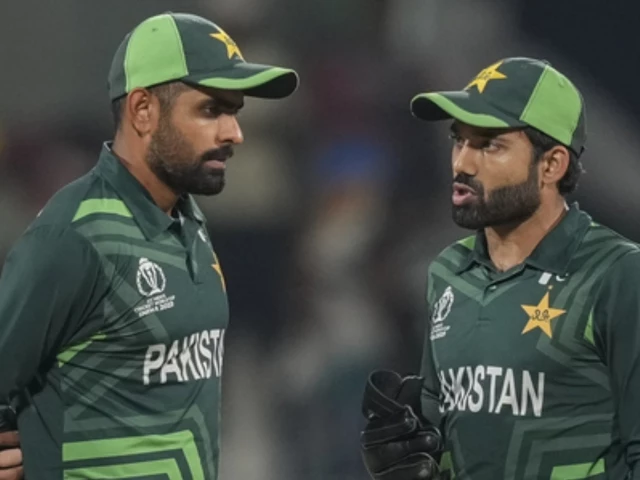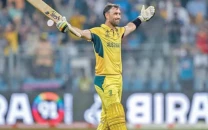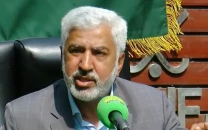Babar Azam, Muhammad Rizwan's social media accounts blocked in India
Instagram accounts of key sports figures, including Shaheen Afridi and Arshad Nadeem, also face restrictions in India.

India has blocked the social media accounts of several high-profile Pakistani cricketers, including national team captain Muhammad Rizwan and star batter Babar Azam, following a deadly militant attack in Pahalgam, located in Indian Illegally Occupied Jammu and Kashmir (IIOJK).
Instagram accounts of key Pakistani sports figures and celebrities, including Shaheen Afridi, Olympic gold medalist javelin thrower Arshad Nadeem, and actors Hania Aamir and Ali Fazal, were also restricted in India. The decision follows the recent Pahalgam attack, which claimed multiple lives and has been described as one of the deadliest in the region in recent years.
Users in India attempting to access these Instagram pages are now met with a message stating: “Account not available in India. This is because we complied with a legal request to restrict this content.” Identical messages appear on the profiles of Rizwan, Babar, and others.
Earlier this week, India also blocked 16 Pakistani YouTube channels on the recommendation of the Ministry of Home Affairs, including those run by former national cricket stars Shahid Afridi, Rashid Latif, and Shoaib Akhtar. Authorities cited “national security” as the reason for the move.
However, critics argue the restrictions are part of a broader attempt by the Indian government to suppress critical commentary, particularly in the wake of the Pahalgam incident. Indian security forces have faced scrutiny over alleged operational lapses during the attack.
Shahid Afridi, known for his outspoken stance on Kashmir and other political matters, has frequently challenged India’s position on regional issues. His YouTube channel, popular across South Asia, is now inaccessible to users in India.
Analysts view the move as an effort by Prime Minister Narendra Modi’s government to control the domestic narrative by silencing dissenting voices from across the border.
The timing of the bans, closely following the Pahalgam violence, has raised concerns about increasing digital censorship and the politicization of cross-border dialogue.




















COMMENTS
Comments are moderated and generally will be posted if they are on-topic and not abusive.
For more information, please see our Comments FAQ